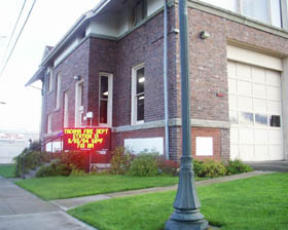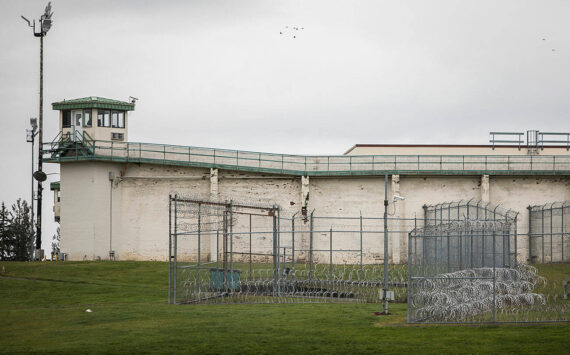When City Manager Jim Walton unveiled Tacomas preliminary 2005-2006 budget last month, you couldnt blame community service and economic development organizations for feeling fearful and targeted.
Among the recommendations: eliminate 12 community oriented police officer positions; close Fire Station 13, laying off more than a dozen fire fighters; reduce the citys financial support of Safe Streets by $22,500; eliminate $60,000 in funding for World Trade Center Tacoma; reduce funding for CARES/Neighborhood; reduce funding support for Neighborhood Council; reduce funding to market Tacoma as a viable, profitable place to do business; eliminate $450,000 in funding for various community relations services; and reduce transportation services for seniors.
The city has continued to be a full-service city as costs have continued to rise, City Manager Walton explained in a statement. The costs of providing the same service year after year have outpaced the revenues the city brings in to offset those costs. As a result, the city has to change the way it provides services, including reductions in a number of services. In the end, I know the city will offer a higher quality of services, not a higher quantity of services.
But community service and economic development organizations disagree.
How can the city live up to itself often-praised recognition as Americas most livable city (an honor the city received from Partners for Livable Communities, a national non-profit organization working to restore and renew America’s communities) when it cuts programs that promote this claim?
It is tragic that Tacoma is reducing its development and promotional funding in a very competitive world, says Andreas Udbye, executive director of the World Trade Center Tacoma. By prioritizing like this, we are falling off the map and radar screen, and other cities and regions with ample funding and a different attitude will capitalize on our predicament.
Need proof? Udbye points to Texas. The state has surpassed California as the nation’s largest exporter because of an aggressive, well funded and global marketing effort. San Antonio is boosting its international development staff from nine to twelve employees next year, according to Udbye. The city has also landed a new Toyota manufacturing plant due to its patient and determined efforts.
If the city council approves the recommendation to cut funding for Udbyes organization, he will have to lay-off one staff member and thinly spread resources.
Priscilla Lisicich, the executive director of Safe Streets, faces similar woes. If the city council approves the recommendation to cut funding, Safe Streets will be required to reduce the services it provides to high-crime areas. We know that if we let down our efforts to keep people focused together on our crime reduction and prevention activities, crime will creep back into areas we have worked so hard to organize, Lisicich explains. Sadly, in difficult financial times, it is not always easy to remain committed to investment strategies — such as public safety — that will ensure long term returns in the future.
To be sure, the city is $29.6 million in debt. The budget aims to reduce this gap by generating revenue in the following areas: carrying forward $7 million from 2003-2004; selling city-owned property for $1.3 million; generating new revenues of $4.3 million (increasing the business and occupations tax, imposing that tax on Internet service providers, eliminating the tax credit for creating new jobs, and increasing various fees); creating $1.9 million efficiencies; and reducing programs, such as those described above, to save $14.4 million. These moves would still leave the city $500,000 in debt, but better off than when it started.
The budget recommendations also point to a community survey conducted two years ago. In that survey, conducted by Elway Research, the city asked residents to prioritize their budget issues.
The result?
Fire services ranked second to last as a long-run priority. Economic development ranked last as an issue of personal importance. That said, perhaps the budget recommendations deliver exactly what Tacoma residents want.
Residents and city officials will have plenty of opportunities to review and comment on the budget. Public hearings are set for 5:30 p.m. on Nov. 16 and Nov. 23 at the Council Chambers of the Tacoma Municipal Building. The council will hold budget workshops at the same location on Nov. 6 (8:00 a.m. to 12:00 p.m.), Nov. 12 (4:30-8:30 p.m.), Nov. 17 (4:30-8:30 p.m.), and Nov. 20 (8:00 a.m. to 12:00 p.m.). CityPost (Channel 85 on Click!, Channel 77 on Comcast) will air the audio portion of the workshops live.
Regardless of all the upcoming budget debate, Udbye at World Trade Center Tacoma argues the budget issue is simple. Success breeds success, he says. If the city council wants to make this an international city, it has to put some money into it.
To read the City of Tacoma’s 2005-2006 preliminary budget, visit http://www.ci.tacoma.wa.us/take5/oct23Budgetupdate_SE.htm








